No Offense Read online
Page 2
Even his living situation was stressful—more stressful, in fact, than being the youngest sheriff in the history of Little Bridge, or the bar fights he frequently had to break up over at Ron’s Place. John would happily take a drunken brawl over being a single parent to a teenage daughter any day.
“Hi, Sheriff.” Bree Beckham, the Mermaid’s most popular waitress—thanks to her bright pink hair and even brighter smile—came up to the counter to wait on him. “What’ll it be today? Burger?”
John looked down at the menu and sighed. Who was he kidding? He was never going to eat a salad, not even one with locally caught shrimp.
Bree seemed to sense his dilemma. “How about the fish sandwich?”
Well, that was a nice compromise, just in case the doctor was right. “What’s the fish today?” John asked.
“Yellowtail,” Bree said, with an approving nod at John’s caution. “Caught fresh this morning. We can fry, blacken, or grill it for you.”
John was saved from having to grapple with this decision—obviously he’d prefer it fried, but neither his daughter, Katie, nor his doctor would like this—when his radio crackled.
“Chief,” Marguerite, over at the station, said. “You at the Mermaid?”
“’Scuse me, Bree,” John murmured, and lifted the hand radio on his shoulder to his mouth. “Yes, I am, Marg. And stop calling me Chief. What’ve you got?”
“Sorry, Sheriff. Craziest thing. We just got a call about a baby being abandoned in one of the bathrooms over at the library. EMTs are already on their way, but—”
“I’ll be right over,” John said, and gave Bree an apologetic smile as he refastened his radio. “Have to take a rain check on that fish sandwich.”
“A baby?” Bree shook her head, not even trying to pretend she hadn’t been eavesdropping. That wasn’t the Little Bridge way. On an island with a population of nearly five thousand, everyone knew everyone else’s business. “Who leaves a baby in a library? Must be a tourist.”
John didn’t want to ruffle anyone’s feathers by mentioning that in his experience, the incidents of child neglect in Little Bridge were spread evenly across the board, tourists and locals alike. So he only murmured a laconic, “Yep,” then laid down a five-dollar bill to cover the cost of the café con leche he’d consumed while perusing the menu.
“Oh, Sheriff.” Bree pushed the bill back toward him. “You know your money’s no good here.”
John smiled as he put on his wide-brimmed hat. “Put it in the donation jar for all those animals you like to save, then. And give my regards to Drew.”
Bree grinned happily at the mention of her boyfriend’s name and pocketed the bill. “I will. Thanks, Sheriff.”
The library was only one block away, but John drove, lights and siren blaring, because a lost baby was an emergency. So it was less than a minute before he was pulling up before the squat, office-style building that looked so out of place beside its statelier neighbors. Through some fluke in city planning, the town library had ended up in the middle of one of Little Bridge Island’s oldest and most expensive residential neighborhoods, each house built in the Victorian style, with wraparound, veranda-style front porches trimmed with gingerbread and dotted with comfortable-looking rattan sofas and chairs (about which his daughter, who’d spent her formative years on the mainland, had once asked, “Why doesn’t anyone steal them, Daddy?”).
The owners of these homes weren’t bothering to contain their excitement that the library—an architectural horror built in the 1960s—was scheduled for demolition in a few short months. Thanks to the generosity of a single, very wealthy donor, the eccentric but universally beloved widow Dorothy Tifton, the books were soon to be moved to the old high school, which was being renovated to accommodate them, and a center for Floridian history was to be constructed in the old building’s place.
As he pulled on the glass-and-metal doors and heard the familiar squeak of protest, then smelled the even more familiar scent of mildew, paper, and dust, John wondered if the librarians were as wistful about this move as he was. It’s true that the old library was small and cramped, and the new one was going to be a vast improvement.
But it sometimes seemed to John as if too many things were changing too fast . . . and not necessarily for the better.
“Hey, there,” he said to the extremely old woman sitting at the reception desk. John thought he recognized her as the librarian who’d worked in the building when he’d been a boy. But that woman had been so old then, she must surely be dead by now. “I’m Sheriff Hartwell. We got a call about a—”
The old woman nodded.
“I know, John,” she said in a creaky voice. “Although I suppose I should be calling you ‘Sheriff’ now.”
So it was her. She wasn’t dead! And somehow she’d remembered him after all these years. He must have made quite an impression as a boy . . . probably not a good one.
“Thank you, ma’am,” he said, politely doffing his hat. Phyllis Robinette, read the nametag pinned to her blouse. Of course! If it wasn’t for Phyllis Robinette taking him in hand that rainy day so many years ago, when he and his friends had staggered into the library, looking for something to do (or, more correctly, destroy), and showing him the biography section, he might never have discovered all those books on the people—sports heroes, military heroes, aviators, and lawmen—who later became his role models.
It was because of this woman that he’d discovered reading for pleasure, which had caused him to perform better in school, make good enough grades to get into college, major in criminal justice, and become what he was today . . . the county sheriff.
Should he tell her what a remarkable impression she’d made on him?
“I don’t suppose you’d be able to hurry this along?” the old woman asked, tartly. “The presence of so many persons carrying firearms is going to make quite a few of our patrons nervous.”
No, he was not going to tell her. At least, not today.
“I’m sure we’ll have this all straightened out shortly, ma’am.”
“Mm-hmm. The way you’ve straightened out those burglaries over by the old high school?”
He took the criticism in stride. It wasn’t as if he hadn’t heard it before. “Well, we do our best, ma’am. Those particular break-ins—”
She didn’t wait for him to finish. “Right in there, John. You know the way.”
Dismissed, he turned and walked in the direction in which Mrs. Robinette was pointing, a fresh wave of nostalgia washing over him as he entered the room in which he’d spent so many hours as a boy. It looked—and smelled—exactly the same, down to the mural on the ceiling of friendly barnyard animals. (Why barnyard animals on an island in South Florida that was closer to Cuba than it was to the mainland, he’d always wondered. Why not sea creatures? Perhaps because so many children growing up on Little Bridge knew how to avoid jellyfish stings but not that milk came from cows.)
The EMTs were already there. John was pleased to see it was a particularly competent team, who worked well together and rarely gave his deputies any guff.
Bearded, tattooed Max was kneeling beside an attractive young woman whom John had never seen before—unusual, since, aside from tourists, he was acquainted at least by sight with nearly everyone on the island. The young woman was holding a baby in her lap. Max had a stethoscope pressed to the baby’s chest.
“Good, strong heartbeat,” Max said after a moment.
“Thank God,” the young woman said. The people gathered around her—men and women, boys and girls, many of them holding heavily decorated gingerbread men, for some reason—all echoed the sentiment, letting out a collective sigh of relief.
“Wade,” John said quietly, since it was a library and there was a baby and Max seemed to have the scene under control. The baby wasn’t even crying, but John had enough experience with babies not to take that as a positive sign. Wade noticed him and quickly came over.
“Hey, Sheriff,” he whispered. “Can you b
elieve this?”
“Not sure,” John said. “What is this, exactly?”
“Baby, abandoned. New librarian found her,” Wade said, nodding in the direction of the attractive young woman. “Molly, er, Montgomery, I think her name is? Anyway, somebody stuck the baby in a box and left her in a toilet stall in the girls’ room.”
“Hmmm.” John narrowed his eyes. There was a box advertising industrial-sized trash bags sitting on a tiny, child-sized table a few feet away. “That box there?”
“Yeah. Whoever did it wrapped her up in a towel, but she was cold anyway on account of the AC in here. Librarian did the right thing by picking her up and trying to keep her warm till we got here. We’re gonna get her over to the hospital now, but she seems to be doing okay, considering.”
John nodded. “Good. How old do you think she is?”
“Newborn. Hours. No more than a day, for sure.”
John nodded again. He’d said, “Good,” but he didn’t actually think any of this was good. Bad enough to abandon a baby, but to abandon one in a box meant for trash bags, and in a library? Especially when the fire station, a state-appointed safe haven for newborns under a week old, was just down the street.
He counted a dozen people in the room, not including himself and the EMTs. Of that, six appeared to be women of child-bearing age. It was doubtful from their demeanor that any of them was the mother, but he’d need to question them all.
This included the librarian. She was handing Max the baby, whom the EMT began to address in gibberish. John knew that Max had two dogs at home that he adored, so speaking in gibberish to any creature smaller than himself wasn’t unusual for him.
Still, the librarian apparently didn’t know this. She looked slightly concerned as she watched Max bundle up the baby in an emergency thermal blanket from the ambulance. In her early to mid thirties, Molly Montgomery was neatly dressed in black slacks and a floral top, her dark hair cut in what John’s fashion-conscious daughter always referred to as a bob. The librarian had a slim figure, not one of a female who’d given birth recently, and it would be odd—though not unheard of—for someone who’d just delivered a baby to report it as if she’d “found” it.
But neither of those things was enough for John to rule her out as the mother. He was going to have to question her. He was going to have to question her most closely of all.
“Marg,” he said into the handset on his shoulder. “I’m gonna need some help over here at the library.” He glanced around at the crowd, noting that their gazes were still fixed on the baby. People sure did go nuts over babies. “A lot of it.”
His favorite sergeant’s voice was as unruffled as usual. “You got it, Sheriff. Castillo and Martinez are on their way.”
That task completed, John stepped forward, deciding that he should start with the new librarian, since she was the one who’d found the baby, and not at all because she was so attractive and a possible, though not likely, suspect.
“Miss, er, Ms., ma’am?” They’d recently gone through a four-hour sexual harassment–awareness training program at the department, at John’s own request, after what had happened with the last sheriff. But even with the training and a teenage daughter at home to constantly remind him when he was saying something that could be construed as sexist, he was never sure when he might be offending someone. “Ms. Montgomery?”
As the librarian tore her gaze from the baby and brought it to his face, he was startled by how large and dark her eyes were. This had to be some kind of trick of the makeup she wore. No one’s eyes could possibly be that wide and beautiful on their own.
“Yes?”
“Sheriff John Hartwell.” John touched the rim of his hat, nodding politely, his standard greeting toward all members of the public. “I understand you’re the one who found the baby. If I could just ask you a few questions?”
“Oh, of course.” The librarian turned from the baby and began walking toward a cluttered desk a few feet away.
“Thank you, ma’am.”
John observed several things at once, the first being that Molly Montgomery’s voice was quiet but pleasantly melodic, exactly how a children’s librarian’s voice should sound. Mrs. Robinette’s voice had sounded that way, back before time and dealing with a constant stream of badly behaved children like himself and his friends had robbed it of its youthful vitality.
The second was that her desk was one of the messiest he’d ever seen. Piled high with books of all different sizes and thicknesses, it was also littered with scrap paper of assorted colors and the kind of stubby pencils they gave people at bowling alleys—and golf courses—to fill out their scorecards.
More upsetting to a type A individual like himself was the plethora of brightly colored Post-it notes stuck everywhere, including on the librarian’s computer screen. Post-its like that would leave a sticky residue on a computer monitor that could be hard to clean.
If the desks of any of his deputies back at the department had ever grown even remotely this disorganized, he would have referred them to human resources for counseling immediately.
But none of these was the most disconcerting thing John observed. The most disconcerting thing he observed was that the librarian’s backside was every bit as appealing-looking as her front side.
He quickly averted his gaze, however, as he knew from both his sexual harassment training and his many years of experience on the job that eyeing the physical attributes of witnesses was inappropriate.
“Would you like a seat?” the librarian asked, gesturing to an empty chair beside her desk. Unfortunately, it was a child’s chair. Everything in the children’s department was child-sized, except for the librarian’s desk. “Or something to drink? We have sparkling apple juice today. We were having a cookie decorating party when one of the mothers came out and said she thought there was something unusual in the restroom.”
“Uh.” He eyed the small table littered with cookies and frosting. “Gingerbread cookie decorating? In April?”
“Oh.” She glanced in the direction of the table and gave a rueful little smile. “Yes, well, I wasn’t here during the holiday season. And I’ve always wanted to do a cookie decorating program. So it was a non-holiday-specific cookie decorating party. Though I’m not sure now that it was the best idea.”
He raised his eyebrows. “Why not?”
“Well, it got a little messier than I was expecting.” She pointed at the tile floor beneath the table, which was littered with cookie crumbs and a rainbow of sprinkles. “And though the program was intended for younger children, we had a teenager show up, which ordinarily would have been fine, but this particular teenager—”
It could not possibly be this easy. “Any idea of her name?” He drew his notebook from his belt.
“Oh, no.” Smiling and shaking her head, she said, “Elijah’s a he. And the baby couldn’t possibly be his. Elijah’s sixteen, but there’s no way he . . . I mean—” The librarian sank down into the chair behind her desk, the smile gone, her hands fluttering a little nervously. “Sorry. What I meant is, Elijah is a wonderful boy, but he couldn’t have anything to do with the baby. He barely has any friends, let alone a girlfriend. And besides, he was here with me the entire time.”
John nodded. Of course she was nervous—not because she was guilty of anything, but because of what she’d been through. It wasn’t every day someone found a newborn baby in their workplace bathroom and then got questioned about it by the authorities.
He knew it wasn’t helping that he was towering over her in his uniform. It was time to sit, even though every bone in his body cried out at the thought of folding his six-foot-three frame into that tiny little chair beside her desk . . . especially remembering how, twenty odd years ago, he’d easily fit into similar chairs in this very same room. Now the chair creaked beneath his weight.
The librarian didn’t appear to notice the great sacrifice he was making, however, just as she didn’t appear to notice that she had white frosting sme
ared across her black floral top, and a little bit in her dark hair, too. She was simply too upset.
“She’s going to be okay, right?” she asked him anxiously. “The baby?”
“Oh, yes,” he said, shifting his weight in the tiny chair. “I have it on excellent authority that she’s going to be fine. Are there security cameras in this building?”
She nodded. “Yes, of course—”
His heart leaped, until she added, “But they don’t work.”
“Excuse me?”
“We’re having state-of-the-art ones installed in the new library, of course, to help enhance the safety of our patrons and to prevent theft and vandalism. But the cameras here are ancient, and stopped working ages ago, and since we were moving anyway, we figured, why spend money on new ones—”
He decided it was best to skip to his next question.
“And you didn’t notice anything—or anyone—out of the ordinary this morning?”
“No. But it’s been so busy, because of the cookie party. And honestly, anyone could come in anytime holding a box that size and I wouldn’t give them a second glance. We accept donations year-round.” She must have noticed his puzzled look, since she elaborated, “Of books. We have a used-book sale every other weekend, so people are constantly dropping off boxes of books. We do a very brisk business in paperbacks, especially romance novels and thrillers, what with all of the tourists on vacation.”
He nodded like he knew what she was talking about. “And you’re certain the box wasn’t there when you arrived this morning?” he asked, opening his notebook so he could record her answer, trying to appear professional in his absurd position in the children’s chair, with his knees sticking up higher than his elbows.
“Oh, yes,” she replied, her large eyes huger than ever. “I always check all the rooms when I get in, just to make sure there isn’t a From the Mixed-Up Files of Mrs. Basil E. Frankweiler situation going on. And the box certainly wasn’t here then.”

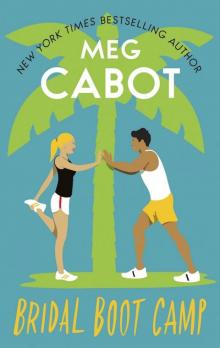 Bridal Boot Camp
Bridal Boot Camp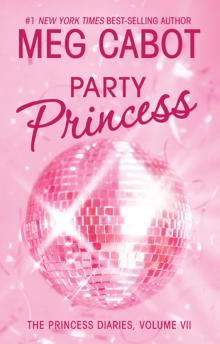 Party Princess
Party Princess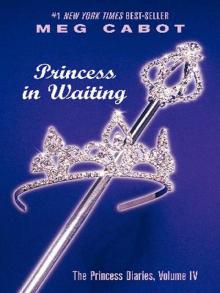 Princess in Waiting
Princess in Waiting Being Nikki
Being Nikki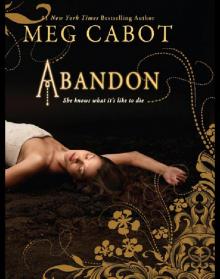 Abandon
Abandon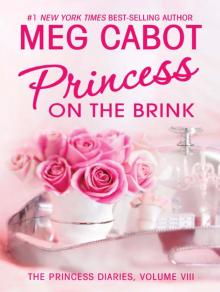 Princess on the Brink
Princess on the Brink Darkest Hour
Darkest Hour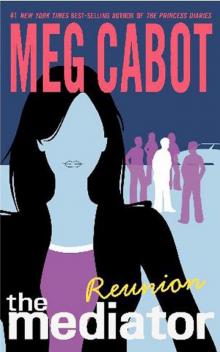 Reunion
Reunion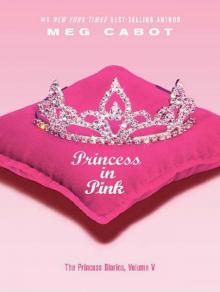 Princess in Pink
Princess in Pink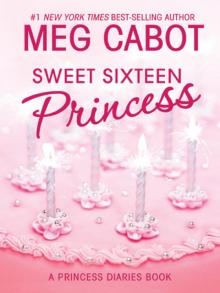 Sweet Sixteen Princess
Sweet Sixteen Princess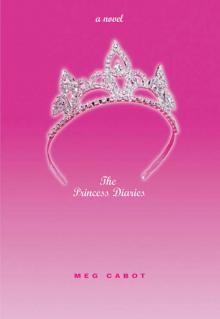 The Princess Diaries
The Princess Diaries Airhead
Airhead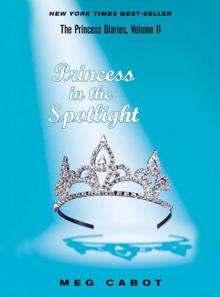 Princess in the Spotlight
Princess in the Spotlight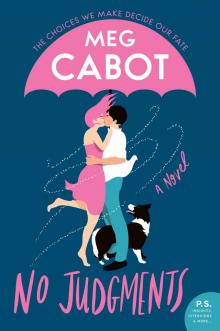 No Judgments
No Judgments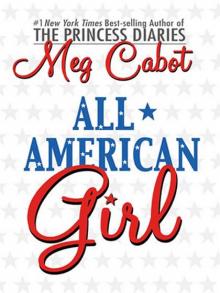 All-American Girl
All-American Girl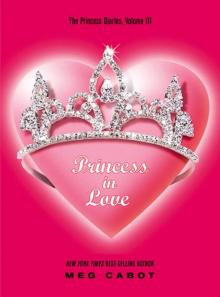 Princess in Love
Princess in Love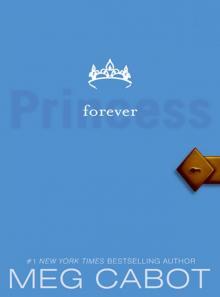 Forever Princess
Forever Princess Haunted
Haunted Shadowland
Shadowland Twilight
Twilight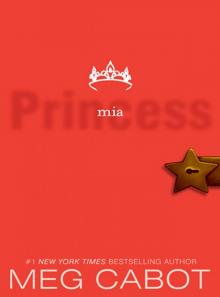 Princess Mia
Princess Mia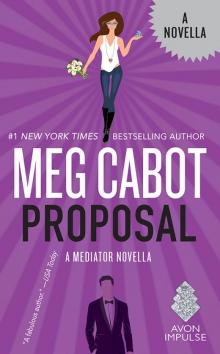 Proposal
Proposal Remembrance
Remembrance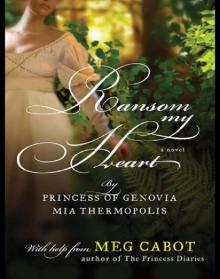 Ransom My Heart
Ransom My Heart Underworld
Underworld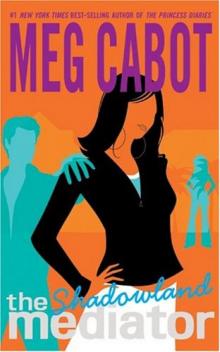 Shadowland tm-1
Shadowland tm-1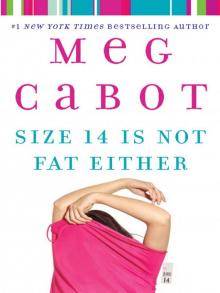 Size 14 Is Not Fat Either
Size 14 Is Not Fat Either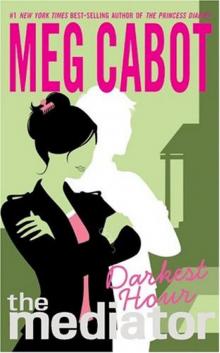 Darkest Hour tm-4
Darkest Hour tm-4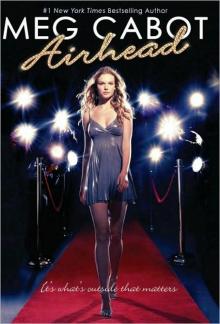 Airhead a-1
Airhead a-1 Royal Crush
Royal Crush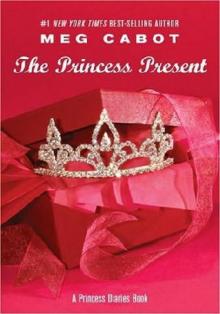 The Princess Present (princess diaries)
The Princess Present (princess diaries)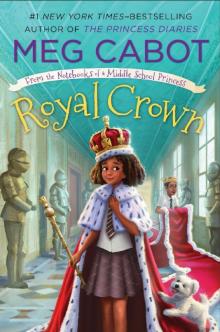 Royal Crown
Royal Crown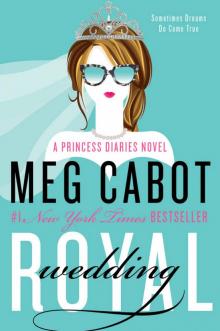 Royal Wedding: A Princess Diaries Novel (The Princess Diaries Book 11)
Royal Wedding: A Princess Diaries Novel (The Princess Diaries Book 11)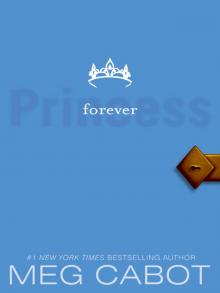 Princess Diaries, Vol. X: Forever Princess
Princess Diaries, Vol. X: Forever Princess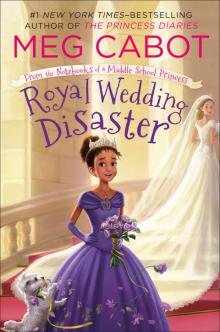 Royal Wedding Disaster
Royal Wedding Disaster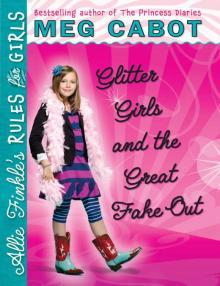 Allie Finkle's Rules for Girls: Glitter Girls and the Great Fake Out
Allie Finkle's Rules for Girls: Glitter Girls and the Great Fake Out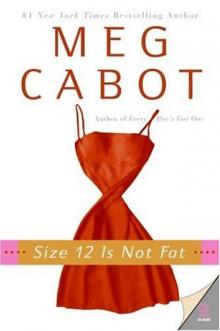 Size 12 Is Not Fat hwm-1
Size 12 Is Not Fat hwm-1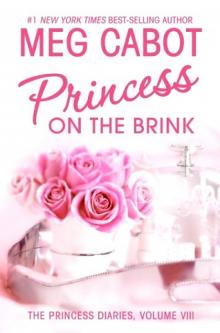 Princess on the Brink pd-8
Princess on the Brink pd-8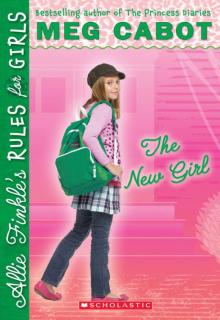 The New Girl
The New Girl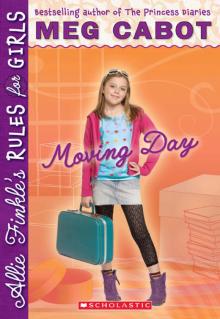 Allie Finkle's Rules for Girls: Moving Day
Allie Finkle's Rules for Girls: Moving Day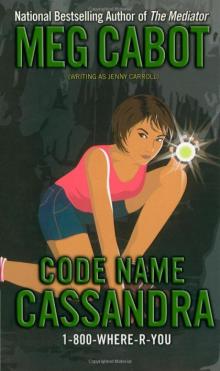 Code Name Cassandra
Code Name Cassandra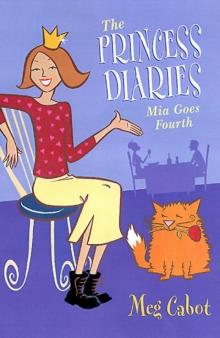 Mia Goes Fourth pd-4
Mia Goes Fourth pd-4 Sanctuary 1-4
Sanctuary 1-4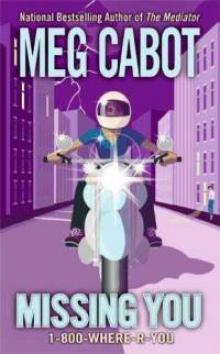 Missing You 1-5
Missing You 1-5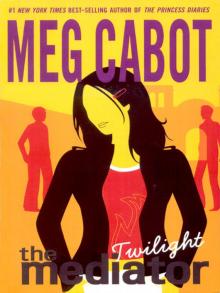 The Mediator 6: Twilight
The Mediator 6: Twilight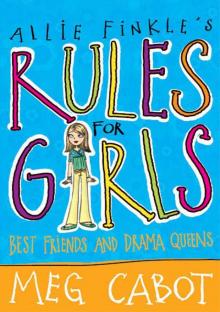 Allie Finkle's Rules for Girls: Best Friends and Drama Queens
Allie Finkle's Rules for Girls: Best Friends and Drama Queens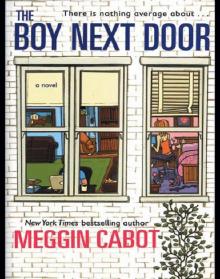 The Boy Next Door
The Boy Next Door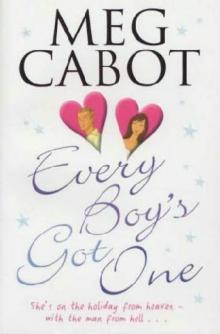 Every Boy's Got One
Every Boy's Got One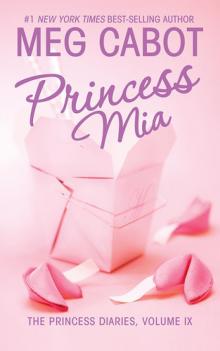 Princess Mia pd-9
Princess Mia pd-9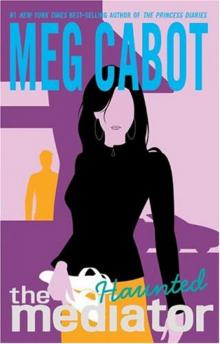 Haunted tm-5
Haunted tm-5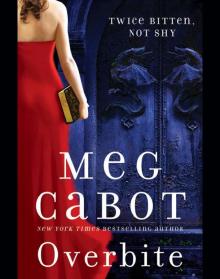 Overbite
Overbite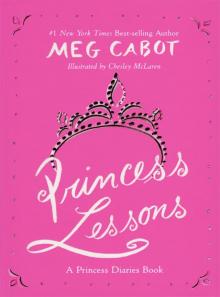 Princess Lessons
Princess Lessons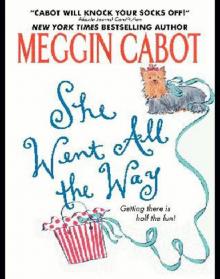 She Went All the Way
She Went All the Way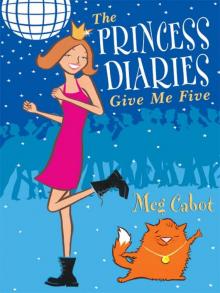 Give Me Five pd-5
Give Me Five pd-5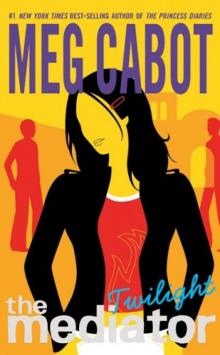 Twilight tm-6
Twilight tm-6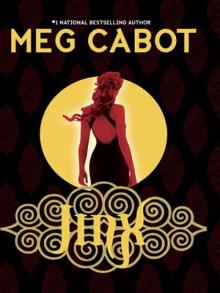 Jinx
Jinx Runaway (Airhead #3)
Runaway (Airhead #3)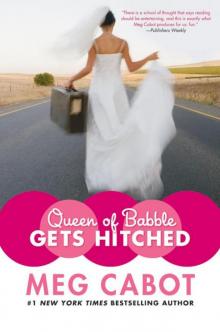 Queen of Babble Gets Hitched qob-3
Queen of Babble Gets Hitched qob-3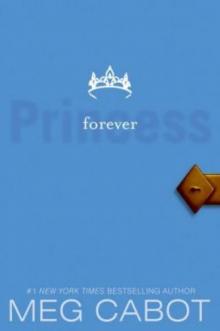 Forever Princess pd-10
Forever Princess pd-10 Queen of Babble
Queen of Babble Boy Meets Girl b-3
Boy Meets Girl b-3 Pants on Fire
Pants on Fire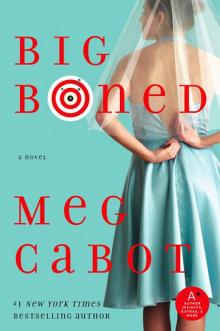 Big Boned ху-3
Big Boned ху-3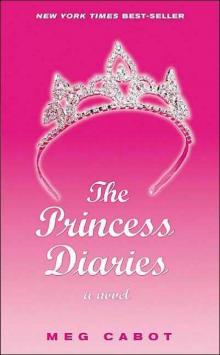 Princess' Diaries pd-1
Princess' Diaries pd-1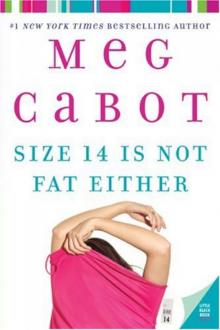 Size 14 Is Not Fat Either hwm-2
Size 14 Is Not Fat Either hwm-2 Awaken a-3
Awaken a-3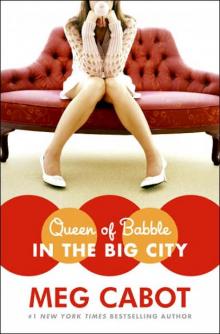 Queen Of Babble: In The Big City qob-2
Queen Of Babble: In The Big City qob-2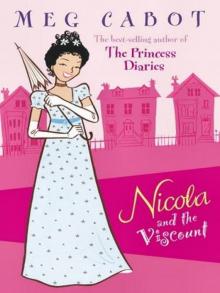 Nicola and the Viscount
Nicola and the Viscount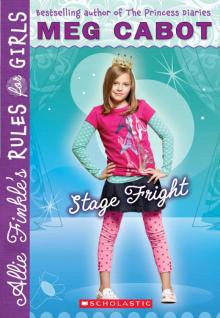 Allie Finkle's Rules for Girls: Stage Fright
Allie Finkle's Rules for Girls: Stage Fright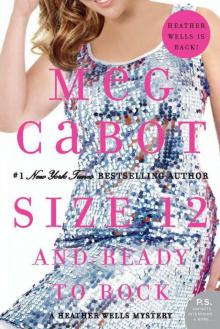 Size 12 and Ready to Rock
Size 12 and Ready to Rock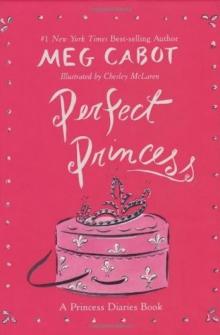 Perfect Princess
Perfect Princess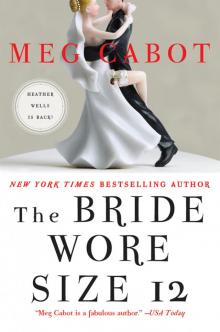 The Bride Wore Size 12
The Bride Wore Size 12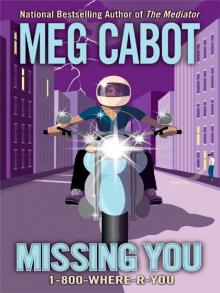 1-800-Where-R-You: Missing You
1-800-Where-R-You: Missing You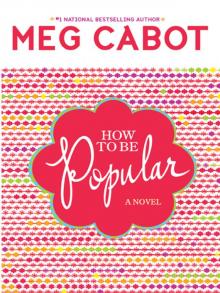 How to Be Popular
How to Be Popular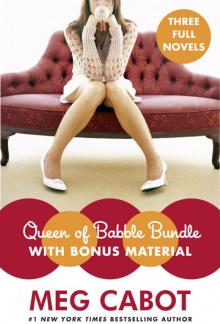 Queen of Babble Bundle with Bonus Material
Queen of Babble Bundle with Bonus Material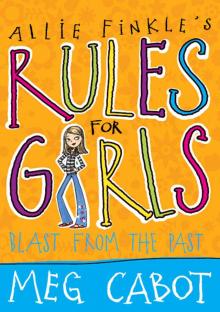 Allie Finkle's Rules for Girls: Blast from the Past
Allie Finkle's Rules for Girls: Blast from the Past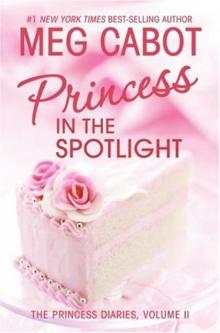 Princess in the Spotlight pd-2
Princess in the Spotlight pd-2 Ready or Not
Ready or Not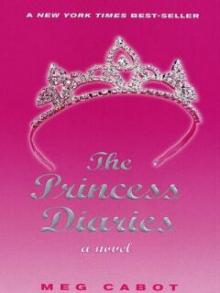 The Princess Diaries I
The Princess Diaries I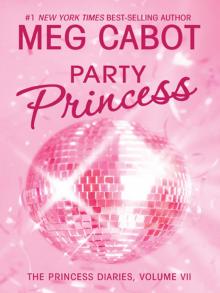 Party Princess pd-7
Party Princess pd-7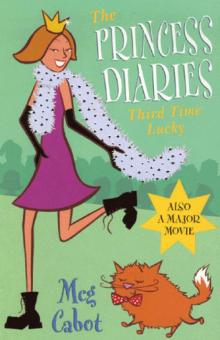 Third Time Lucky pd-3
Third Time Lucky pd-3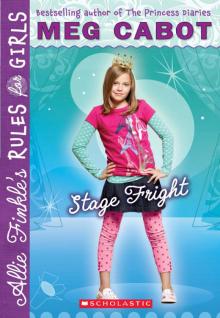 Stage Fright
Stage Fright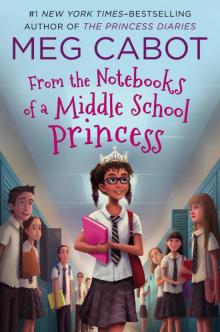 From the Notebooks of a Middle School Princess
From the Notebooks of a Middle School Princess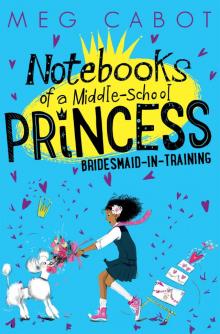 Notebooks of a Middle-School Princess Bridesmaid-in-Training
Notebooks of a Middle-School Princess Bridesmaid-in-Training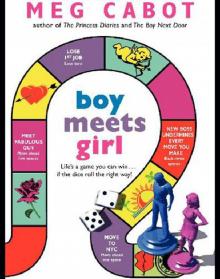 Boy Meets Girl
Boy Meets Girl Missing You
Missing You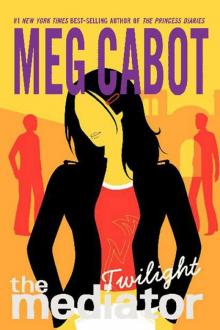 The Twilight
The Twilight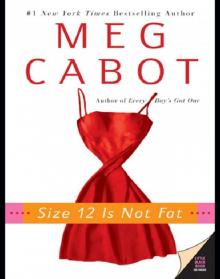 Size 12 Is Not Fat
Size 12 Is Not Fat Code Name Cassandra 1-2
Code Name Cassandra 1-2 Valentine Princess
Valentine Princess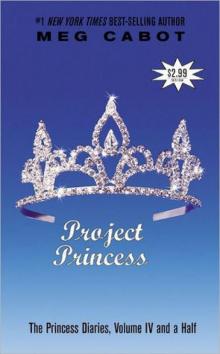 Project Princess
Project Princess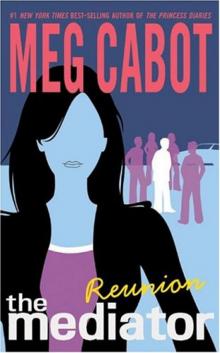 Reunion tm-3
Reunion tm-3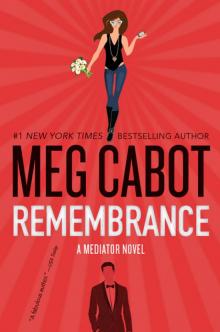 Remembrance: A Mediator Novel
Remembrance: A Mediator Novel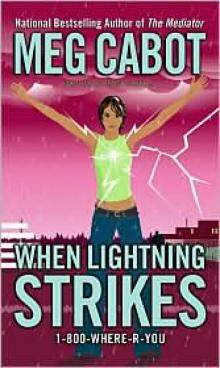 When Lightning Strikes 1-1
When Lightning Strikes 1-1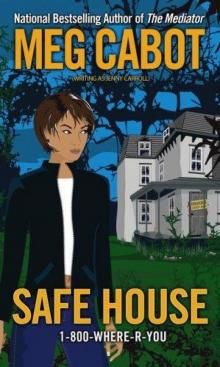 Safe House 1-3
Safe House 1-3 Teen Idol
Teen Idol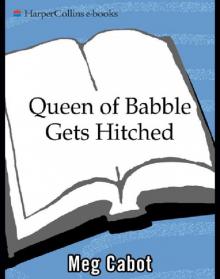 Queen of Babble Gets Hitched
Queen of Babble Gets Hitched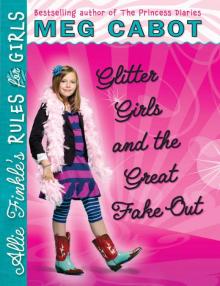 Glitter Girls and the Great Fake Out
Glitter Girls and the Great Fake Out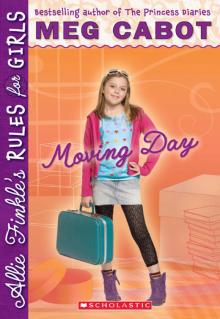 Moving Day
Moving Day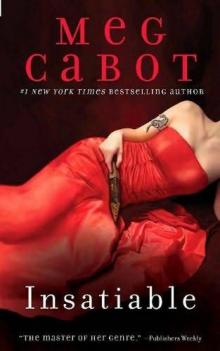 Insatiable
Insatiable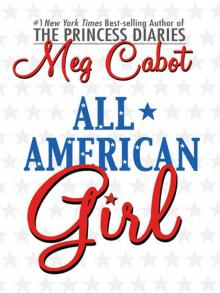 All American Girl
All American Girl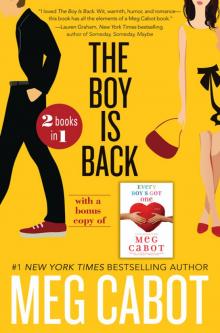 The Boy Is Back + Every Boy's Got One Bundle
The Boy Is Back + Every Boy's Got One Bundle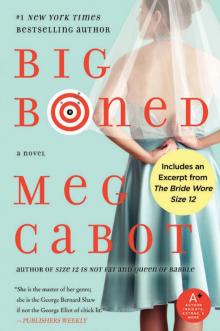 Big Boned
Big Boned Awaken
Awaken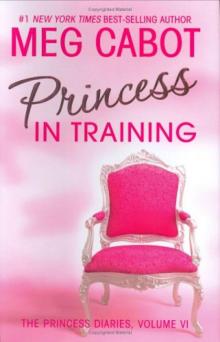 Princess in Training pd-6
Princess in Training pd-6